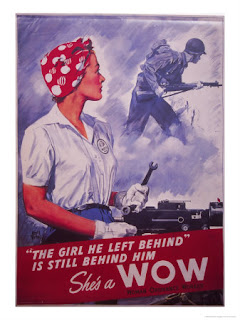CHAPTER 5:
"Rosewater said an interesting thing to Billy one time about a book that wasn't science fiction. He said that everything there was to know about life could be found in The Brothers Karamazo, by Fedor Dostoevsky. 'But that isn't enough any more,' said Rosewater." (page 101)
When I read this short passage I almost thought nothing of it. However, I remembered that Vonnegut has a purpose for every reference he makes in his book. Even though he didn't explain what he meant by this passage, I knew it had to hold a deeper meaning. When I researched this book the online summary from "The Literature Network" said, "This novel explores the big questions of life through the story of a highly dysfunctional "family": three sons basically neglected and abandoned by their father Fyodor." Wikipedia stated that the book, "The Brothers Karamazov is a passionate philosophical novel that enters deeply into the ethical debates of God, free will and morality. It is a spiritual drama of moral struggles concerning faith, doubt, and reason, set against a modernizing Russia."
From my research of the novel, I understood what Vonnegut meant by the passage above. The Brothers Karamazo gives the answers to some of the most difficult questions to answer in life. It is a book meant to inspire people to live better lives, for it gives you the answers on how to do it. However, those answers aren't enough anymore. The answers won't change anything. They can't change how people act, nor can they change the world because, the world has moved beyond reason: wars are being fought by children, humans are mutilating one another, horrors upon horrors are occurring. Answers are worthless when people stop asking the questions, words are powerless unless action aids them, and nothing will ever change unless people are moved to action.
When I read this short passage I almost thought nothing of it. However, I remembered that Vonnegut has a purpose for every reference he makes in his book. Even though he didn't explain what he meant by this passage, I knew it had to hold a deeper meaning. When I researched this book the online summary from "The Literature Network" said, "This novel explores the big questions of life through the story of a highly dysfunctional "family": three sons basically neglected and abandoned by their father Fyodor." Wikipedia stated that the book, "The Brothers Karamazov is a passionate philosophical novel that enters deeply into the ethical debates of God, free will and morality. It is a spiritual drama of moral struggles concerning faith, doubt, and reason, set against a modernizing Russia."
From my research of the novel, I understood what Vonnegut meant by the passage above. The Brothers Karamazo gives the answers to some of the most difficult questions to answer in life. It is a book meant to inspire people to live better lives, for it gives you the answers on how to do it. However, those answers aren't enough anymore. The answers won't change anything. They can't change how people act, nor can they change the world because, the world has moved beyond reason: wars are being fought by children, humans are mutilating one another, horrors upon horrors are occurring. Answers are worthless when people stop asking the questions, words are powerless unless action aids them, and nothing will ever change unless people are moved to action.







